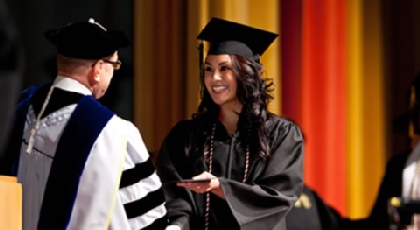Page 68 • (1,291 results in 0.037 seconds)
-
The departmental lab emphasizes archaeological teaching and provides an excellent opportunity for students to apply scientific methods of hypothesis testing in the context of the social sciences. Among the goals of the program are to teach archaeological recording techniques, to develop an understanding of the procedures and mastery of the techniques of specific scientific instruments, and to familiarize students with the analysis of artifactual and paleoenvironmental data. Summer Archaeological
-
teachers of Chinese have completed the teacher preparation program led by Betty Lau in Seattle Public Schools, funded by STARTALK. I was one of the first Chinese teachers to get my teacher certification and Chinese language endorsement through this program. Expansion of Chinese Language Programs in public high schools 2004 – 2012 Based on data from the Mapping & Enhancing Language Learning (MELL) Surveys in 2004, 2007, 2009, and data from the OSPI Student Enrollment database (CEDARS) in spring 2012, we
-

student experience through better student services and programming, as well as capital improvements, she said. “The university is committed to asking for and listening to student opinion and to providing the best PLU experience we can,” Majovski said. The most recent survey responses were compared to data gathered during the 2008-09 and 2006-05 academic years, as well as data gathered nationally from 400 four-year private institutions. PLU students rated 10 categories above the national average
-
Academic integrity is honesty concerning all aspects of academic performance including clinical performance. Academic integrity in the classroom is defined in the PLU Student Rights and Responsibilities. Academic dishonesty in the clinical setting include, but are not limited to: Plagiarizing clinical assignments, including care plans, drug reviews, falsifying data in a patient’s record, or other required work, Submitting work written by others as one’s own work, Unauthorized collaboration with
-
autonomous systems in security applications has become paramount. “The Security Car” represents an innovative approach to security and mapping, leveraging fundamental tools for autonomous navigation and data collection. This capstone project presents an autonomous RC car equipped with Lidar sensors for precise environmental mapping and obstacle detection, integrated with ROS (Robot Operating System) for robust control and sensor data management. As the vehicle navigates its environment, it employs
-
challenges unique to the sector such as HRM strategies and accountability mechanisms, working with volunteers, fundraising, ethics, and legal issues. BUSA 358: Entrepreneurship– Intensive study of issues and challenges associated with start-up, growth, and maturation of a new enterprise. COMA 361: Strategic Communication- Introduces the theories, methods, and practice of public relations. Emphasizes technical and analytical skills. DATA 133: Introduction to Computational and Data Science– Introduction to
-

rewarding is bringing his students alongside and sharing with them the value of hard work, hands-on learning and timely scholarship. “One of my goals at PLU is to promote early engagement of undergraduate students – especially for women and underrepresented students – in machine learning, bioinformatics, and the data science field,” he says. “I want to inspire students to pursue advanced STEM education and research careers.” Cao explains: “Not only is research interesting for the students, I think it’s
-

After graduating from PLU in 2007, Schwartz held a collection of jobs including working in janitorial services, data entry at a nonprofit, and environmental remediation work on houses. In 2010, he entered Union Theological Seminary, in New York City. He thought he’d become a Lutheran pastor. But by the second week, he wasn’t sure he wanted to stay on. Faculty members encouraged him to stay, advocating for the philosophical and life experiences resulting from seminary school. In 2012, Schwartz was
-
University of Washington Molecular Engineering Materials Center (UW MEM-C) Summer 2024 REU program Posted by: alemanem / February 7, 2024 February 7, 2024 Students will be embedded in one of the UW MEM-C labs for 9 weeks. They will work with a graduate student and faculty member to develop a research project, gain training in relevant techniques and instrumentation, collect data and finally produce a poster and research abstract. Students participate in a weekly seminar on undergraduate
-
, and evaluation of laboratory data. This position will support staff with projects and programs for surface water sediments, wastewater, soils, and other matrices. Qualifications Enrollment in a college-level science course work designed to result in a Bachelor’s or Master’s degree in Chemistry OR related science with at least a minor in Chemistry. Applications due May 15th. Get all the details here. Read Previous The Priscilla Carney Jones Scholarship Read Next ACS Diversity, Inclusion, Equity
Do you have any feedback for us? If so, feel free to use our Feedback Form.


